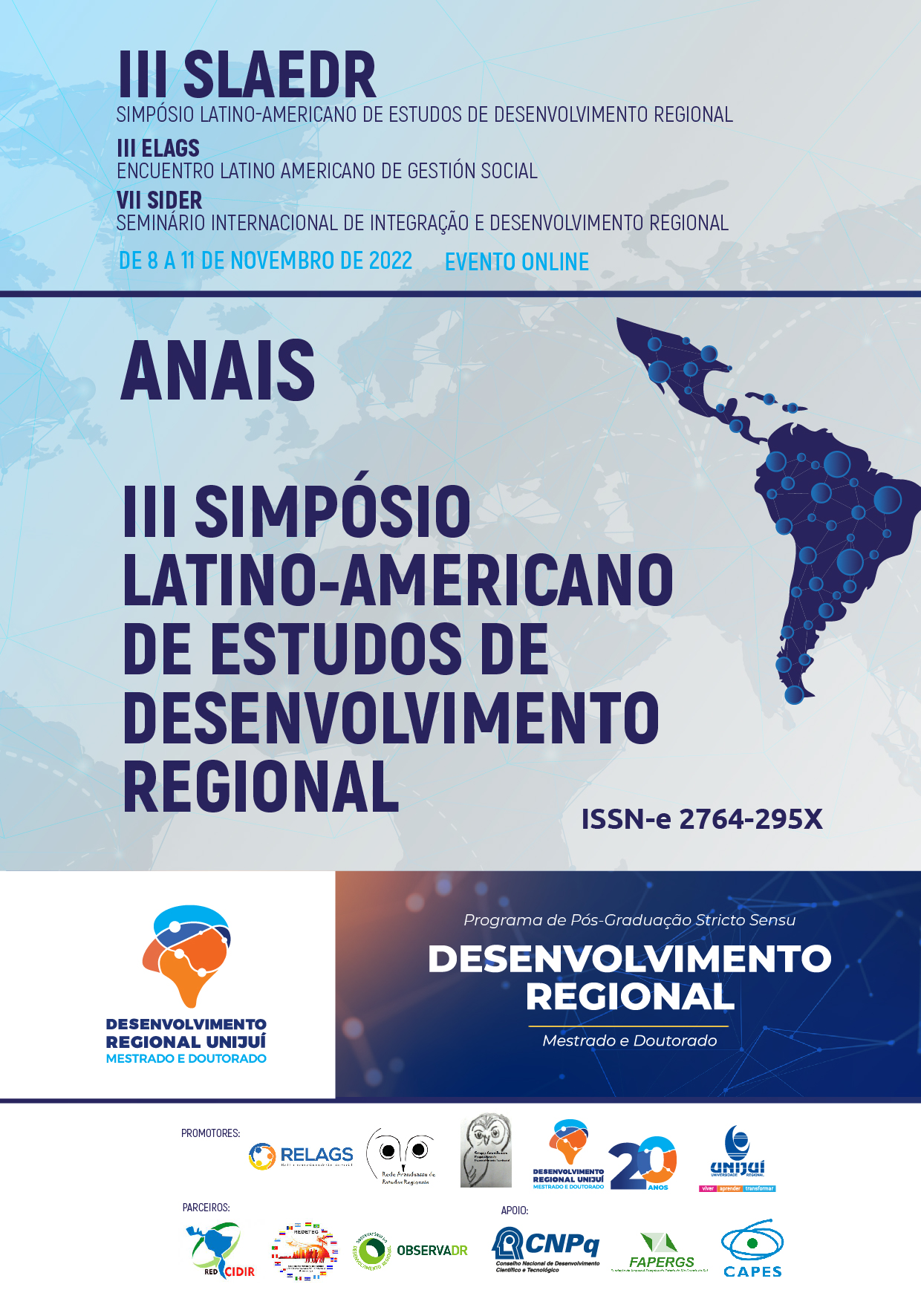CONTRIBUTIONS OF MINDFULNESS PRACTICE FOR THE HEALTH AND WELL-BEING OF ADOLESCENTS:
A LITERATURE REVIEW
Keywords:
Mindfulness, Adolescence, MindfulSustainable Development GoalsAbstract
The aim of the present study was to review studies that address the benefits of mindfulness practice for the health and well-being of adolescents. The search for scientific articles was carried out on the Capes Periodicals Portal. The keywords used were “mindfulness” and “adolescents”, in the category “any field”. The filters used were: Peer-reviewed journals, Articles, and Portuguese, English and Spanish. Articles that addressed health benefits to adolescents were included and articles related to the translation and validation of measurement scales of the mindfulness construct, literature reviews and/or meta-analyses, duplicate articles and articles not available for reading were excluded. The initial search included 49 articles, eight of which were selected for reading. Scientific articles were described in terms of their objectives, population and main results. The sample included articles that reported the association of mindfulness with other constructs, results of interventions based on mindfulness and the description of a conscious education project. In studies of adolescents, mindfulness was
positively associated with emotional intelligence and spirituality/religion; and was negatively associated with sports anxiety, body shame, psychoactive substance use, and symptoms of depression. A health education project based on mindfulness has resulted in increased empathy, improved relationships, reduced anxiety and attention deficit symptoms, and improved academic performance of participating adolescents.
References
BROWN, K. W.; RYAN, R. M. The benefits of being present: Mindfulness and its role in psychological well-being. Journal of Personality and Social Psychology, v. 84, n. 4, p. 822– 848, 2003.
COBOS-SANCHEZ, L.; FLUJAS-CONTRERAS, J.; GOMEZ, I. Resultados diferenciales de la aplicacion de dos programas en competencias emocionales en contexto escolar. Psychology, Society & Education, v.11, n. 2, p.179-192, 2019.
FERNANDES, D.V.; GOUVEIA M. J.; CANAVARRO, M. C.; MOREIRA H. Mindfulness and Psychological Adjustment in Paediatric Obesity: The Mediating Role of Body Image. Psychology, Community & Health, v.7, n.1, 122-137, 2018.
GAMA, R.; CUNHA, M.; FERREIRA, C.; GALHARDO, A.; OLIVEIRA, S. A relação entre o criticismo do treinador e a ansiedade dos atletas: O papel do mindfulness e do autojulgamento. Revista Portuguesa de Investigação Comportamental e Social, v.7, n. 2, p. 43–60, 2021.
KABAT-ZINN, J. Mindfulness-based interventions in context: past, present, and future. Clinical Psychology: Science and Practice, v. 10, p. 144–156, 2003.
LANGER, A. I.; SCHMIDT, C; AGUILAR-PARRA, J. M.; CID, C.; MAGNI A. Effects of a mindfulness intervention in Chilean high schoolers. Rev. méd. Chile, Santiago, v. 145, n. 4, p. 476-482, 2017. http://dx.doi.org/10.4067/S0034-98872017000400008.
LÁZARO, P. J. R.; GÓMEZ, T. R.; PRÁDANOS, A. M.; MARÍN, E. N. Mindfulness en Pediatría: El proyecto "Creciendo con atención y consciencia plena". Pediatría Atención Primaria, v. 16, n. 62, p. 169-179, 2014.
MONTEIRO, B. R. Indicadores de monitorização e desempenho nas unidades de saúde familiar e os Objetivos do Desenvolvimento Sustentável na saúde (ODS 3): uma análise comparada em Portugal no período de 2013-2018. Ciênc. saúde coletiva, v. 25, n. 4, 2020.
ORGANIZAÇÃO DAS NAÇÕES UNIDAS. Agenda 2030. Objetivo 3. Boa Saúde e BemEstar. Disponível em: http://www.agenda2030.org.br/ods/3/. Acesso em: 29 jul. 2021.
ORGANIZAÇÃO DAS NAÇÕES UNIDAS BRASIL. Agenda 2030 para o Desenvolvimento Sustentável. 2015. Disponível em: https://brasil.un.org/pt-br/91863- agenda-2030-para-o-desenvolvimento-sustentavel. Acesso em: 17 fev. 2022.
ORGANIZAÇÃO DAS NAÇÕES UNIDAS BRASIL. Sobre o nosso trabalho para alcançar os Objetivos de Desenvolvimento Sustentável no Brasil. 2022. Disponível em: https://brasil.un.org/pt-br/sdgs. Acesso em: 17 fev. 2022.
RAMÍREZ-GARDUÑO, A.; VEYTIA LÓPEZ, M.; GUADARRAMA, R. G.; LIRAMANDUJANO, J. Consciência, espiritualidade e religião, e seu papel como fatores protetores do uso de substâncias em adolescentes mexicanos. Nova Scientia, [S. l.], v. 12, n. 25, 2020.
ROVIRA, A. M. Problemas en el adolescente, mindfulness y rendimiento escolar en estudiantes de secundaria. Estudio preliminar. Propósitos Y Representaciones, v. 8, n. 1, p. 1-18, 2020.
SILVA, J. G. da; TEIXEIRA, M. L. de O.; FERREIRA, M. de A. Alimentação na adolescência e as relações com a saúde do adolescente. Texto & Contexto – Enfermagem, 2014, v. 23, n. 4, 2014.
VEYTIA-LÓPEZ, M.; GUADARRAMA, R. G, MÁRQUEZ-MENDOZA, O.; GÓMEZ, R. J. F. Mindfulness y síntomas de depresión en adolescentes mexicanos estudiantes de bachillerato. Actualidades en Psicología, v.30, n. 121, p. 39-48, 2016.
WORLD HEALTH ORGANIZATION. Adolescent health. Disponível em: https://www.who.int/health-topics/adolescent-health#tab=tab_1. Acesso em: 25 set. 2022.



